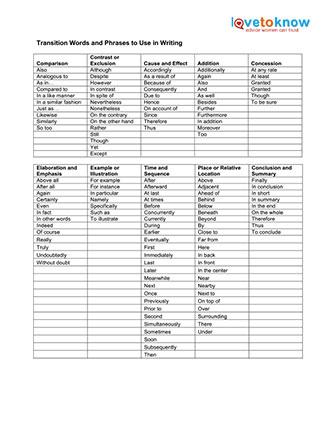
The transportation industry is a broad mark segment that involves moving freight and/or people from one place to another. From shipping, trucking, and materials moving to commercial airlines and oceangoing vessels, the transportation industry encompasses a wide variety of jobs and career options, most of which don't require extensive training or education as a prerequisite to entry. If you're interested in playing a role in moving people or goods, then working in the transportation sector is definitely a good career path to consider. Some require travel and operating vehicles (pros for those who want to travel) while others are behind the scenes (a key advantage for those who prefer to be at home most nights).
Jobs That Directly Involve Moving Freight or People
Some of the best jobs in transportation are the ones that involve directly moving people or freight. These jobs tend to be in high demand, which means that opportunities are plentiful and pay is good. These factors fall directly into the "pro" category, as does the fact that these jobs don't require years of formal education beyond high school. Many of these jobs do require workers to spend an extended time away from home. Depending on your situation, you may see that as a pro or a con. Another drawback is that these jobs do tend to be sedentary, which can lead to health problems if workers aren't careful to get plenty of exercise in their downtime.
Truck Driver
Truck drivers operate big rigs commonly known as tractor-trailers. They transport goods between manufacturers, distribution centers, warehouses, stores, and other destinations. Truck drivers often pick up goods directly from waterfront ports or intermodal rail yards. Some truck drivers work over-the-road (OTR), which means they drive long distances and are away from home for extended stretches. Some drive local routes that require few to no overnight stays. Demand is high for both OTR and local drivers. Truck drivers must have a commercial driver's license (CDL). A degree is not required. The average pay for truck drivers is around $50,000 per year, though owner-operators (drivers who own their own trucks) usually earn more.
Delivery Driver
Delivery drivers operate panel trucks or vans that are used to deliver products or packages directly to customers. They may work for businesses that sell large items, such as furniture or appliance stores, or be employed by parcel delivery services like FedEx or United Parcel Service (UPS). They typically work a local area within a certain radius of the location where they are employed, rather than driving long distances. They load the trucks they drive and are also responsible for unloading and carrying items once they arrive. Some delivery drivers also set up furniture or appliances upon arrival. The average delivery driver salary is around $37,000 per year, though drivers with big-name companies can earn significantly more.
Commercial Airplane Pilot
Commercial pilots play an important role in the transportation industry. Pilots who fly passengers may be the most visible commercial airplane pilots, but there are also a lot of commercial pilots who fly cargo planes that solely deal with moving goods as part of the supply chain. Not only do UPS and FedEx have their own fleets of cargo planes, so does Amazon. Like truck drivers, pilots are in high demand. In order to work as a pilot, one must first obtain a Federal Aviation Administration (FAA) commercial pilot's license (CPL). This requires passing a medical exam and logging significant flight time. The median pay for commercial airplane pilots is over $110,000 per year.
Train Engineer

Trains play an important role in the transportation industry. Train engineers drive trains that transport passengers or freight. They must actively monitor a variety of instruments during trips to ensure safe operations. They are responsible for making adjustments as instructed to do so by dispatchers, or based on weather conditions or other factors, such as freight type or weight. They are also involved in inspections that take place between journeys, which helps to ensure that everything is functioning as it should. There is no degree required to work as a train engineer, but it is necessary to earn engineer certification through the Federal Railroad Administration (FRA). The average pay for train engineers is around $70,000 per year.
Ship Captain
Ship captains hold the highest rank on a seagoing vessel. Most ship captains pilot cargo vessels, tug boats, or towboats. Some pilot passenger vessels such as cruise ships. They are responsible for safely transporting their cargo and/or passengers, as well as the crew, across various types of waterways. They are responsible for setting and navigating the ship's course using various navigational aids and with the assistance of crew members. U.S. ship captains must be licensed by the United States Coast Guard (USCG) to operate the particular type of vessel they are operating and/or passage they are traveling. There is not a specific degree requirement. On average, ship captains earn more than $92,000 per year.
Behind-the-Scenes Jobs in the Transportation Industry

Not every job in the transportation industry requires actual travel. You don't have to operate any kind of vehicle or vessel to experience success in this field. For people who would prefer to avoid travel or operating vehicles, this is a definite advantage. These jobs involve behind-the-scenes work using skills that can largely be learned on the job. The job focus is on ensuring that cargo and people arrive safely to their destination. Transportation support jobs are available throughout the world, which is another pro associated with this type of work. Support workers are needed everywhere that cargo changes hands or moves from one supply chain channel to another. Most of these jobs are physically demanding, a factor that some may view as a con.
Trucking Dispatcher
Most trucking dispatchers work from a trucking company's office, while others work remotely from home. They are responsible for scheduling truck drivers to pick up and/or deliver loads, as well as coordinating routes, providing drivers with updates about road conditions, sharing key information drivers need while on the road, and interacting with customers and vendors. Dispatchers are also responsible for recordkeeping tasks related to shipments and deliveries, and for keeping up with truck maintenance schedules, mileage, fuel usage, and other administrative functions such as timesheets and other paperwork. The average pay for trucking dispatchers is around $50,000 per year.
Freight Forwarder
Freight forwarding companies specialize in helping clients who have cargo that needs to be shipped, to get it moved from where it starts out to where it needs to be. They don't directly move things themselves, but instead serve as intermediaries between clients with cargo that needs to be moved and carriers who provide transportation services. Freight forwarders coordinate between ocean, air, rail, and trucking providers to ensure that the cargo they are entrusted to move gets to its destination. They handle all kinds of issues, from navigating customs to dealing with port inspections. The average pay for a freight forwarder is around $53,000 per year.
Railroad Yardmasters
Railroad yardmasters play an important role in the rail industry; but they do not travel on trains. Instead, they are responsible for overseeing railyard operations. This includes tasks like supervising the railyard workers (such as brake, switch, and signal operators) and coordinating the connection and disconnection of train cars. They also make sure that each train is carrying the correct cargo before it leaves the yard. This is not an entry-level job. No degree is required, but it's generally necessary to have significant experience in a railyard operator position before being considered for this type of job. The average pay for a railroad yardmaster is around $65,000 per year.
Longshore Workers
Longshore workers, who are sometimes referred to as stevedores or dock workers, do the difficult and physically demanding labor of loading and unloading cargo from ships that are docked in port. They are responsible for moving items to or from ships or barges to or from rail lines or truck chassis. This work involves manual labor, as well as operating forklifts, cranes, and other heavy equipment. Longshore workers have to be very mindful of working safely in a fast-paced dock environment, and must be alert to the potential for hazardous materials that may be present in some of the shipping containers they are tasked with moving. The average hourly pay for longshore workers is around $27 per hour.
Warehouse Workers
Goods are often stored in warehouses before being shipped to their final destination. Manufacturers often house finished products in warehouses until they are purchased, while other warehouses are used to house items that have already been purchased prior to distribution. For example, a packaged food product may be transported to a regional supermarket warehouse, where it will stay until being trucked to the store, where it will be put on the shelf for consumers to purchase. In either scenario, warehouse workers will be responsible for moving and storing goods, then selecting them to be shipped out when it is time to do so. The average pay for warehouse workers is around $34,000 per year.
Is a Transportation Career Right for You?
Transportation is definitely a growing field in which there will always be many different career opportunities. Now that you've reviewed the examples of transportation jobs above, you should have a solid understanding of just how broad this field really is. The job titles listed here represent just a few of the many options. As with any industry, there are a variety of pros and cons to consider. What one person views as a drawback may be perceived as an advantage to someone else. With so many types of jobs in this field, chances are that you can find an opportunity where the pros line up with what you prefer, and offset any negatives. Love to travel and want to see the world? Great! Consider working as a ship captain or airline pilot. Like to drive but want to be home every night? Choose a local-only truck driving job instead of an OTR route, or go to work in a warehouse where you can drive a forklift. With so many types of jobs in the transportation industry, there are many avenues to explore.







